Understanding Heart Disease in the Elderly
Heart disease is a leading cause of death among the elderly in the United States, yet it is often overlooked or misunderstood in older adults. As we age, our bodies naturally undergo changes, and heart health is no exception. While heart disease can affect anyone, its impact on seniors can be particularly significant due to the combined effects of aging and underlying health conditions. In this article, we will explore the causes, symptoms, prevention, and management of heart disease in the elderly, with a focus on understanding how to care for senior heart health.

1. The Causes of Heart Disease in Older Adults
Heart disease in the elderly often results from a combination of genetic, lifestyle, and environmental factors. Understanding these causes is crucial to preventing or managing heart disease. Some of the primary causes include:
- Aging: As we grow older, the heart muscle may weaken, blood vessels can become stiffer, and arteries may narrow due to plaque buildup. These natural changes make it easier for heart disease to develop.
- High Blood Pressure: Hypertension, or high blood pressure, is a major contributor to heart disease, especially in the elderly. Over time, high blood pressure can damage the heart and arteries, increasing the risk of heart attacks, strokes, and other cardiovascular issues.
- Chronic Conditions: Conditions such as diabetes, high cholesterol, and obesity can increase the risk of heart disease. These conditions often become more common as people age and can directly affect heart health.
- Lifestyle Factors: Poor diet, lack of physical activity, smoking, and excessive alcohol consumption all contribute to the development of heart disease. These lifestyle choices can exacerbate existing risk factors and lead to further complications as individuals age.
2. Symptoms of Heart Disease in the Elderly
Heart disease in older adults often presents differently than in younger individuals. Seniors may experience more subtle symptoms, making it difficult to recognize heart disease early. Some common symptoms to watch for include:
- Chest Pain or Discomfort: A common symptom of heart disease, this may be described as tightness, pressure, or a squeezing sensation in the chest.
- Shortness of Breath: Difficulty breathing or feeling winded during everyday activities could be a sign of heart-related issues, particularly if it occurs suddenly or worsens over time.
- Fatigue: Unexplained tiredness or weakness, even after rest, can be a symptom of heart disease in the elderly.
- Swelling in the Legs and Ankles: Fluid retention, which leads to swelling in the lower extremities, is common in heart failure and other heart-related issues.
- Dizziness or Lightheadedness: Feeling faint or dizzy, especially when standing up quickly, can signal problems with blood circulation and heart health.
3. Risk Factors for Heart Disease in the Elderly
Several risk factors increase the likelihood of heart disease in older adults. Some of these are controllable through lifestyle changes and medical intervention, while others are linked to aging and genetics. Key risk factors include:
- Family History: A family history of heart disease increases the risk of developing similar conditions. Genetics can play a significant role in the likelihood of experiencing heart disease at an older age.
- Diabetes: Seniors with diabetes are at a higher risk of developing heart disease, as high blood sugar can damage blood vessels and increase inflammation.
- Obesity: Being overweight or obese places added stress on the heart and increases the risk of developing heart disease, particularly when combined with other factors like high blood pressure or high cholesterol.
- Smoking: Smoking accelerates the aging process of the heart and lungs, increasing the risk of heart disease and other health problems.
- Physical Inactivity: Lack of exercise can lead to weight gain, high blood pressure, and poor cardiovascular health, all of which contribute to heart disease.
4. Preventing Heart Disease in the Elderly
While aging naturally increases the risk of heart disease, there are many steps that seniors can take to reduce their risk and improve their heart health. Prevention is key, and it involves a combination of lifestyle changes, medication management, and regular medical check-ups. Here are some effective strategies:
- Healthy Diet: A heart-healthy diet rich in fruits, vegetables, whole grains, lean proteins, and healthy fats can help lower cholesterol, manage blood pressure, and reduce the risk of heart disease.
- Regular Exercise: Regular physical activity, such as walking, swimming, or yoga, can help strengthen the heart, manage weight, and improve circulation. It is recommended that seniors aim for at least 150 minutes of moderate activity per week.
- Weight Management: Maintaining a healthy weight is crucial for heart health. Reducing excess weight helps to lower blood pressure, decrease cholesterol levels, and reduce the risk of diabetes.
- Quit Smoking: Smoking cessation is one of the most important steps a senior can take to reduce the risk of heart disease. Even after years of smoking, quitting can have immediate benefits for heart health.
- Medication Management: For those with chronic conditions like high blood pressure, diabetes, or high cholesterol, taking medications as prescribed and regularly monitoring health conditions is essential for preventing heart disease.
5. Managing Heart Disease in the Elderly
If heart disease is diagnosed, there are various treatments and interventions available to help manage the condition and improve quality of life. These may include:
- Medications: Medications such as beta-blockers, statins, and blood thinners can help manage symptoms, reduce the risk of complications, and improve overall heart function.
- Heart Surgery: In some cases, surgery may be necessary to treat blocked arteries, repair heart valves, or perform a bypass. While surgery can be effective, it is often reserved for more severe cases.
- Cardiac Rehabilitation: Cardiac rehabilitation programs help seniors recover from heart-related events and improve heart health through monitored exercise, nutritional guidance, and education.
- Regular Monitoring: Frequent check-ups with a healthcare provider, including blood pressure, cholesterol, and heart function tests, are essential for managing heart disease and preventing further complications.
A Real-Life Story of Heart Disease in the Elderly
Meet Henry, an 82-year-old retiree who had always been in good health until one day he began feeling unusually fatigued. He noticed that simple tasks, such as walking up the stairs or gardening, left him winded. His family became concerned when he also complained of chest discomfort, and he was eventually diagnosed with heart disease. Fortunately, with a combination of medication, lifestyle changes, and regular monitoring, Henry has managed to stabilize his condition and continues to live an active and fulfilling life. His story is a testament to the importance of early detection and proactive heart health management.
Understanding heart disease in the elderly is vital for ensuring that older adults live long and healthy lives. With proper prevention, early detection, and effective management, seniors can continue to enjoy life to the fullest, without letting heart disease stand in their way. For expert heart care and guidance, visit HeartCare Hub, your trusted partner in senior heart health.


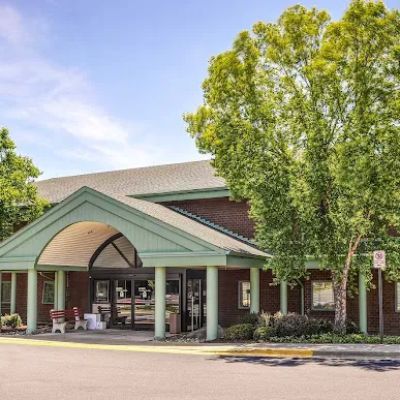
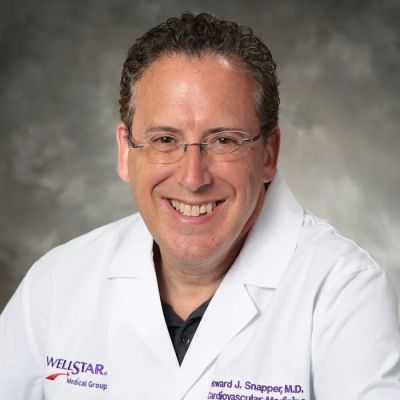




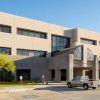
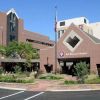
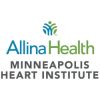
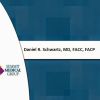









Deborah Heart and Lung Center
deborah heart and lung center
200 Trenton Rd, Browns Mills, NJ 08015, USA